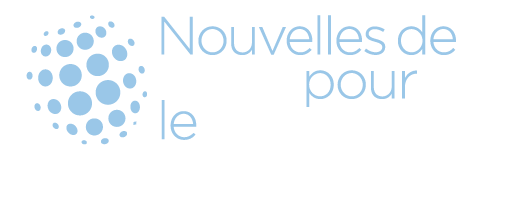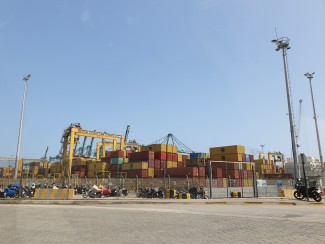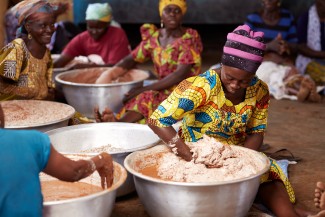Inadequate institutional and productive capacities constitute major impediments to the participation of least developed countries in global trade. How is the Enhanced Integrated Framework supporting them, particularly in Africa, in their efforts to overcome these barriers and benefit more from trade?
Originally published in Bridges Africa, VOLUME 6 - NUMBER 8
The Enhanced Integrated Framework (EIF) is the only global programme dedicated to assisting least developed countries (LDCs) in using trade as an engine of growth, sustainable development, and poverty reduction. It does so through a partnership of donors, international agencies, and LDC governments. First, the EIF offers institutional help to LDCs to build their capacity to trade, as well as to create a policy, regulatory, and strategic institutional structure underpinning the national trade agenda. Secondly, it provides solid support in implementing prioritised projects which are aimed at addressing constraints in the trade-related productive sectors that inhibit LDCs’ participation and at increasing their share of global trade. Country ownership is at the core of the EIF, placing LDCs in the driving seat to determine, prioritise, and implement trade-related interventions. The EIF supports 51 countries, including all 33 LDCs in Africa.
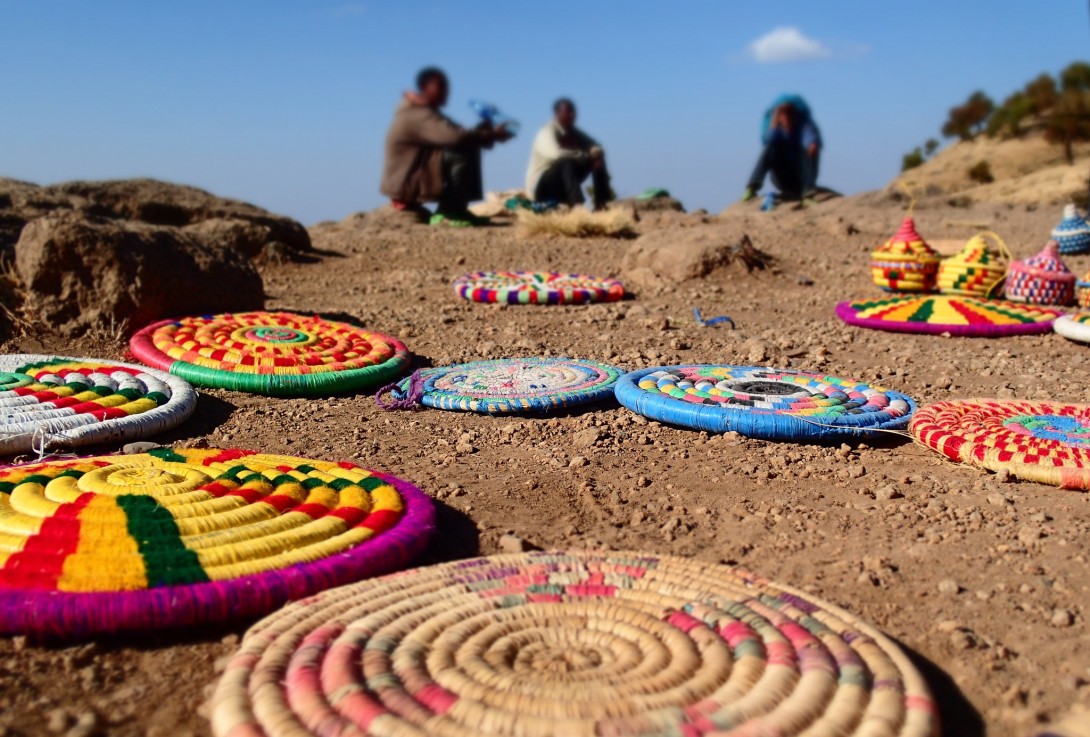
BUILDING LDC TRADING CAPACITY
On the institutional front, in 2016 alone, over 11,000 public officials as well as 5,000 private sector officials in 40 LDCs were trained in trade-related areas, including trade facilitation, global value chains, standards and quality, enterprise development, taxation, trade policy formulation, implementation of trade reforms, trade mainstreaming, and gender mainstreaming in trade. On average, 30 percent of the trainees were women. The knowledge gained facilitates inclusive participation in the national trade agendas of LDCs.
Aid for Trade in LDCs is better delivered when key actors, in both the public and private sectors, work together on the national trade agenda. The EIF has helped 33 countries to establish trade coordination mechanisms which allow development partners to maintain a dialogue on trade-related issues, monitor trade-related activities, and ensure that initiatives are complementary, avoiding duplication of efforts. Such mechanisms include high-level dialogue between government and the private sector on trade policy issues, consultations between government and donors on interventions in the trade sector, and working groups spanning the trade sector.
On the policy front, inadequate and outdated trade policies are major constraints on LDCs’ capacity to trade. In response, through its institutional support, the EIF has helped 35 countries (including three graduated LDCs) make trade a key component of their national development plans. Twenty-one countries have produced updated trade policies which identify trade-related priorities in trade in goods and services at both regional and global levels.
Aid for Trade in LDCs is better delivered when key actors, in both the public and private sectors, work together on the national trade agenda.
Ratnakar Adhikari
In order to effectively mainstream trade into the national development agendas, the EIF has supported 32 LDCs in linking their sector strategies to their trade policies. The aim is to integrate trade into at least three productive sector strategies, which can include agriculture, tourism, energy, industry, information and communication technology, and transportation, as well as cross-cutting areas such as the environment, hard infrastructure, e-trade, gender equity, and micro, small, and medium-sized enterprises (MSMEs). The EIF also assists in ensuring that the process for developing a trade policy and trade strategies includes effective stakeholder engagement and is gender-inclusive, with a focus on helping the poor.
Closely linked to the trade policies and sector strategies is an analytical study called the Diagnostic Trade Integration Study (DTIS), which has been produced in 31 countries with the EIF's support. This evidence-based study enables countries to analyse their macroeconomic outlook, potential business and regulatory reforms, trade in services, trade facilitation, and competiveness. The effective use of the DTIS is imperative if LDCs are to have a clear strategy for mainstreaming trade into their national development plans and productive sector strategies. It is also vital in identifying bankable projects aligned with the identified priorities for future interventions from donors and development partners and/or for foreign direct investment.
The EIF also provides catalytic support to these bankable projects. As of now, the EIF has supported 40 such projects in 29 countries. These projects address sectoral and cross-cutting priorities with potential for development that empowers people, especially the poor, to both participate in, and benefit from, economic growth through job creation, increased revenue and facilitation of a constant income flow.
An overwhelming majority of these projects focus on export productivity increases and export-oriented business development, specifically targeting MSMEs. The 189 MSMEs that have been supported by the EIF have created employment in labour-intensive sectors, including agro-processing, services in the tourism sector, and the textile and apparel industry, all of which have a high level of participation by women.
To list but a few examples, in the Gambia three cashew processors have adopted new packaging technologies which have enabled them to sell to local supermarkets and hotels. Improvements in horticultural production in Lesotho has led to a monthly cash income of US$80 for farmers who previously earned very little. In Burkina Faso, 1,020 new jobs were created in 2016 at 17 new dried mango processing units, leading to increased exports. Between 2014, when the project was initiated, and 2016, exports of dried mangos increased from US$3.9 million to US$10.2 million, translating into growth in exports of 160 percent. In Zambia, 6,580 beekeepers (30 percent of them women) have been trained in improved beekeeping methods, leading to at least a 60 percent improvement in the quality of the honey.
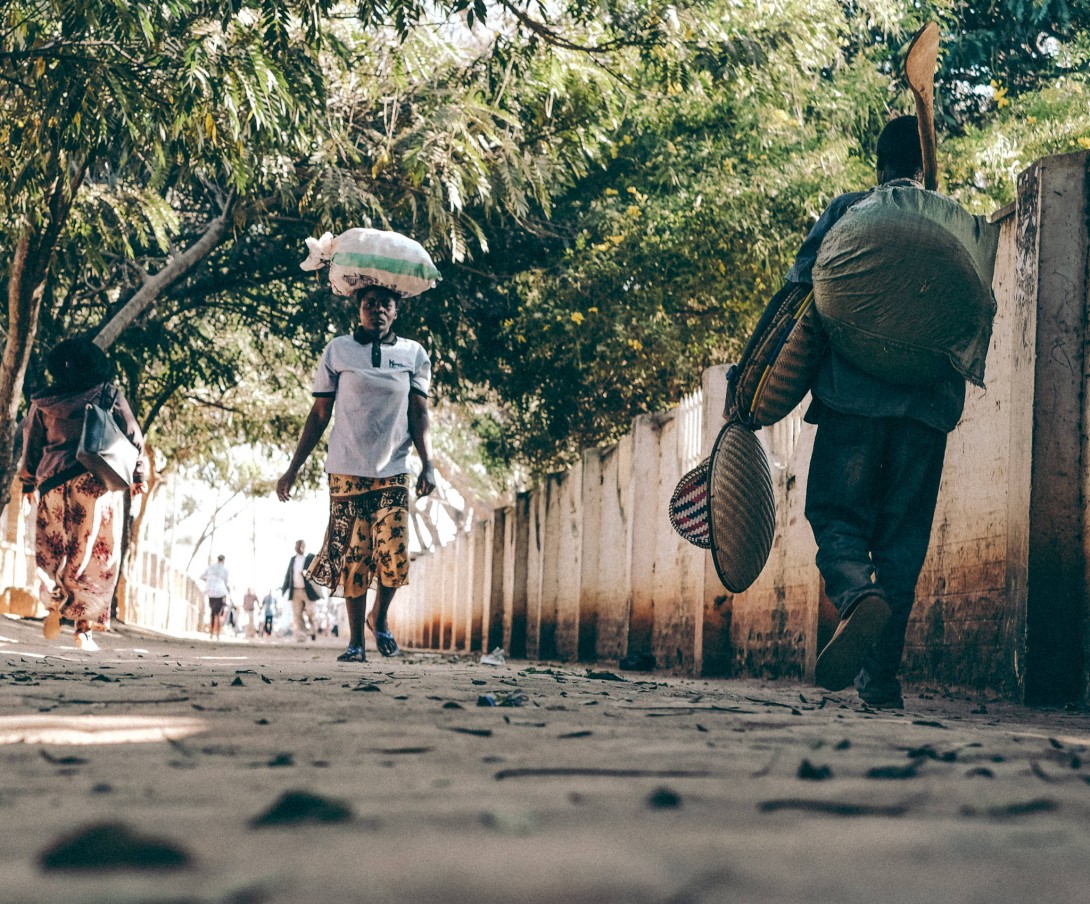
A CHALLENGING ENVIRONMENT
The EIF works with the most challenging countries in the world. Not only are LDCs characterised by pervasive poverty and dependence on development assistance, but some are also geographically isolated and vulnerable, including small island developing states such as Comoros.
Besides these physical impediments, national governments face challenges such as natural disasters (such as the recent mudslide in Sierra Leone); outbreaks of disease (the Ebola epidemic in West Africa); and political upheavals (in Burkina Faso, Central African Republic, Somalia, and South Sudan). Some of these events destroy infrastructure and divert both human and financial resources to other sectors than trade. These impediments affect governments’ commitment to and ownership of the EIF programme, sometimes leading to long-term disruption.
The EIF countries also have specific characteristics that are factored into each country's programming, including in terms of human and institutional capacity, speed of delivery, government commitment, donor and private sector engagement, ability to leverage resources, and so on. This means that the EIF has to identify how the various characteristics fit into the overall programme, finding ways to tailor the programme to fit a country’s needs. Equally, the EIF is mindful of its obligation to effectively and efficiently manage donor resources and to be accountable to the entire partnership. Risk management, including but not limited to fiduciary risk, is embedded in the EIF’s processes in helping to achieve progress in trade development in the world’s poorest countries.

FUTURE PERSPECTIVES
No LDC left behind
The EIF is fully aligned with the Sustainable Development Goals (SDGs) and follows the principle of leaving no LDC behind. SDG 17 calls for revitalising the global partnership for sustainable development, and SDG target 17.11 calls for doubling the share of LDC exports by 2020. As an equal partnership between LDCs, EIF donors, and EIF international agencies, few organisations embody the spirit of SDG 17 more than the EIF. The EIF is best positioned to bring all stakeholders to the table and to coordinate their efforts in helping LDCs to double their export share. In fact, the SDGs specifically mention the importance of the EIF in achieving SDG target 8.a which calls for increasing aid for trade to LDCs, including through the EIF.
Emphasising gender and the environment in programming
The expansion of trade brings growth, as well as new opportunities, but it impacts men and women differently. The EIF will continue to support the sound trade and development policies required to promote a gender-inclusive perspective in the design and implementation of trade-related programmes, particularly empowering women to participate in the productive sectors that are growing through trade. The EIF will also continue to promote environmentally sustainable growth with regulatory frameworks that protect the environment.
Leveraging resources for private sector growth
The EIF uses aid to drive economic reforms and stimulate trade, so that the increased trade can lead to greater opportunities for investment and further trade. Acknowledging that the EIF's investment should be catalytic, the programme is expanding its donor base to include philanthropic organisations and to promote South–South and triangular cooperation. LDCs in turn are responding to this drive by using the EIF mechanism to mobilise financing and expertise for their trade development agenda through various forms of blended funding –including government and private sector, government and bilateral donors, government and the EIF, EIF and bilateral donors, EIF and international agencies, and EIF and private sector resources.
New issues
In line with recent global trade developments and projections of future trends in the global trade discussions, the EIF is enhancing its programming to include new aspects which will impact LDCs’ trade development, including regional integration, e-trade and connectivity, as well as global value chains.
Resource constraint
Faced with several constraints in their efforts to boost their productivity and fully participate in global trade, LDCs need distinct and targeted support, both technical and financial, from domestic and foreign development partners. Such support is crucial to improving efficiency for commodity-dependent LDCs. The current levels of financial support to the EIF are not sufficient to achieve its mandate, as stipulated in SDG 8.a. Consequently, the EIF is opening up access to resources from both traditional and non-traditional donors.

CONCLUSION
A number of institutional and resource constraints continue to work against LDCs’ capacity to increase their share of global trade. However, even in the face of these global and individual challenges, LDCs show some remarkable resilience, reinforcing the need for the EIF’s continuous engagement and support so they can use trade for stronger inclusive economic growth and poverty reduction. The EIF, as the overarching framework to coordinate the delivery of aid for trade to LDCs, will continue to help address these constraints, monitor risks, and institute mitigation measures. Aid to LDCs is better delivered when their trade agenda is fully owned by the country, and when key stakeholders in both the public and private sectors work together on the national agenda. It is this partnership approach, now aligned with the SDGs, that has helped the EIF achieve the desired impact on the ground.
Ratnakar Adhikari is Executive Director, Executive Secretariat for the Enhanced Integrated Framework and James Edwin is the Coordinator, Monitoring and Evaluation at the EIF Executive Secretariat.
If you would like to reuse any material published here, please let us know by sending an email to EIF Communications: eifcommunications@wto.org.
